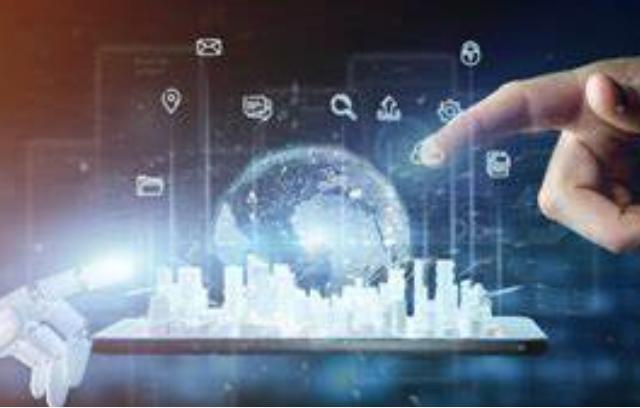The rapid evolution of technology is continuously reshaping the way we live, work, and interact with the world around us. As digital transformation sweeps across industries, its impact is particularly profound in the fields of communication, education, and entertainment. With each innovation, we move closer to a future where the boundaries of possibility are constantly expanding.
One area where technology has made a significant difference is in communication. The rise of 5G networks is revolutionizing how we connect, offering faster speeds, lower latency, and greater bandwidth. With the promise of ultra-fast internet connectivity, 5G is expected to support a new generation of devices, from autonomous vehicles to smart cities. Beyond just faster browsing speeds, 5G will enable real-time data sharing and streaming with virtually no delay, unlocking possibilities for industries such as healthcare, where remote surgeries and consultations can become a reality. It is also expected to enhance the Internet of Things (IoT), connecting everything from household appliances to entire smart grids, creating a truly interconnected world.
The integration of AI and machine learning into daily life is also transforming the way we approach problem-solving. In education, AI-driven tools are providing personalized learning experiences tailored to the individual needs of students. With algorithms that can assess learning patterns, strengths, and weaknesses, educational platforms are becoming more adaptive, ensuring that students receive support where it’s most needed. Additionally, AI is helping teachers by automating administrative tasks, allowing them to focus more on direct teaching and student interaction.
Another area where AI is making waves is in content creation and entertainment. The rise of algorithms that power recommendation engines, such as those used by Netflix, YouTube, and Spotify, has transformed how we consume media. Instead of spending time searching for content, users are presented with tailored suggestions based on their preferences and past behavior. Moreover, AI has started to play a significant role in content creation itself. For example, AI is being used to generate music, write articles, and even create visual art. While this raises interesting questions about the role of human creativity in a world of algorithms, it’s clear that these advancements are opening up new possibilities in the world of entertainment.
In the business world, technology is helping companies to not only streamline operations but also to drive innovation. Automation is one of the key drivers of efficiency, reducing the need for repetitive tasks and enabling employees to focus on more strategic endeavors. In manufacturing, for instance, robots equipped with machine vision and AI are now capable of performing tasks that were once exclusively human, from assembly to quality control. This shift is also being seen in retail, where chatbots and virtual assistants are helping customers with product inquiries, while predictive analytics is driving inventory management and customer service.
Technological advancements are also shaping the future of health and wellness. The increasing integration of wearable devices, such as fitness trackers and smartwatches, allows individuals to monitor their health in real-time, from heart rate to sleep patterns. These devices are not just offering insights into personal well-being, but are also capable of alerting users and healthcare professionals to potential issues before they become critical. For example, some smartwatches are now able to detect irregular heartbeats and notify users of possible signs of atrial fibrillation, allowing for early intervention. Additionally, telemedicine platforms are growing in popularity, making healthcare services more accessible, particularly in remote or underserved areas.
The environment, too, is benefiting from technological advances. Innovations in clean energy technologies, such as solar and wind power, are helping reduce dependence on fossil fuels, while advancements in energy storage are improving the efficiency and reliability of renewable energy sources. Smart grids, powered by AI and IoT, are enabling better energy management by distributing electricity more efficiently and reducing waste. At the same time, electric vehicles are gaining traction as a cleaner, greener alternative to traditional gasoline-powered cars, helping reduce emissions and improve air quality.
While technology continues to offer immense promise, it also raises significant challenges that need to be addressed. The digital divide, for example, remains a major concern. As more and more services move online, access to reliable internet and technology becomes crucial. However, many regions around the world still lack the necessary infrastructure to connect people to the digital world, which exacerbates inequality. Additionally, the rise of automation and AI has sparked debates about the future of work and job displacement. While technology can improve efficiency, it is also replacing certain types of jobs, particularly those that involve repetitive tasks. This shift calls for a focus on reskilling and upskilling workers to ensure that they are prepared for the new opportunities created by emerging technologies.
Data privacy and security are also pressing issues in an increasingly connected world. As more personal information is shared and stored online, the risks of cyberattacks and data breaches grow. Companies and governments must invest in robust security measures to protect sensitive data and prevent unauthorized access. Moreover, ethical concerns surrounding AI and data use are raising important questions about transparency, accountability, and bias. For example, AI systems trained on biased data may perpetuate unfair practices, leading to discrimination in areas like hiring, lending, and law enforcement. It’s crucial that developers ensure that their algorithms are fair, transparent, and accountable.
Despite these challenges, the rapid pace of technological advancement shows no sign of slowing down. From healthcare to entertainment, from the workplace to the environment, technology is creating new opportunities and solving old problems. As we look toward the future, it’s clear that technology will continue to shape and redefine every aspect of our lives. While there are challenges to overcome, the potential benefits are vast, and the innovations of today are setting the stage for the possibilities of tomorrow.
